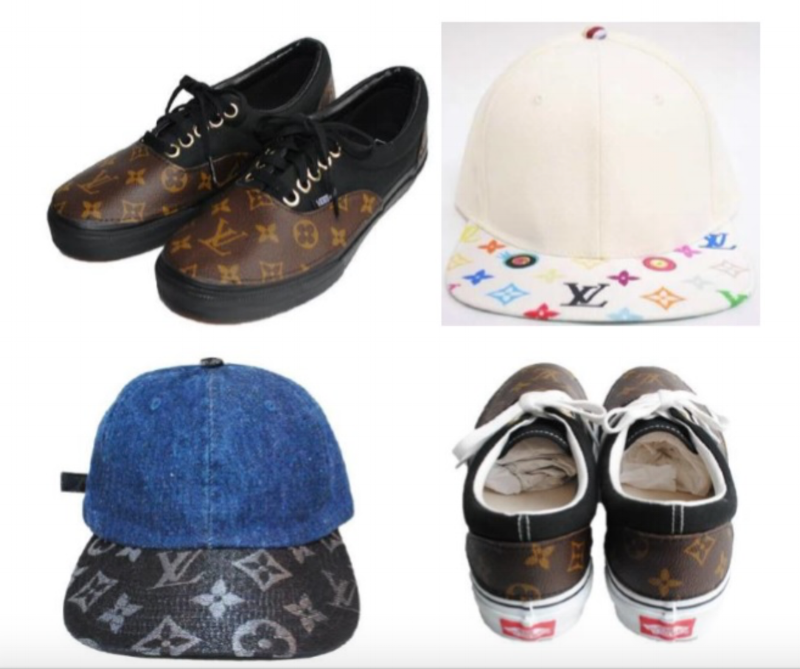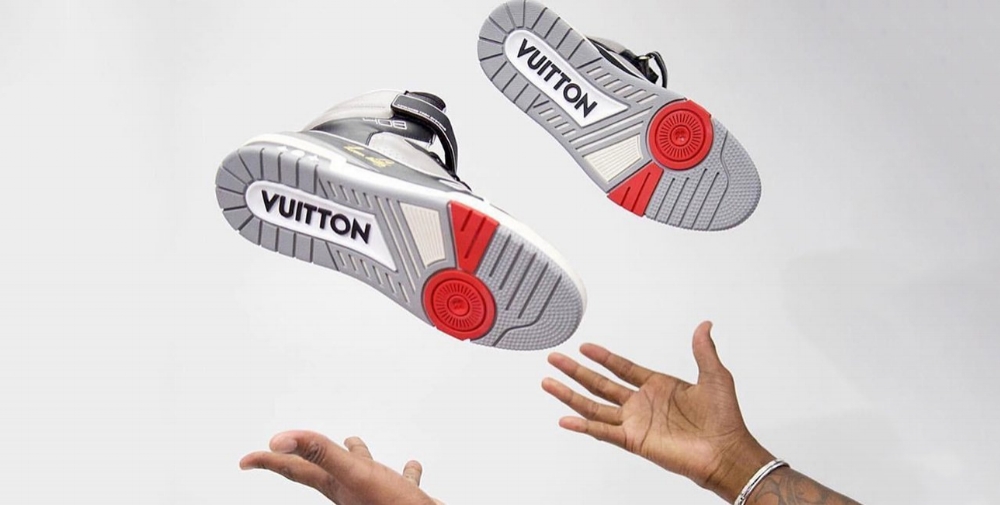You know those customized Vans and Nike sneakers with Louis Vuitton Toile Monogram-accented bodies that have saturated online marketplaces, such as Etsy, and that periodically serve as the subject of articles on highly-trafficked streetwear sites? How about the baseball caps with a Louis Vuitton x Takashi Murakami logo-covered brim? Louis Vuitton is not a fan. And in a recent case, the notoriously protective brand successfully made its argument against the legality of these “custom” products.
On the heels of Louis Vuitton’s May 2017 cruise collection show, which took place against the dramatic and densely-vegetated background of the Miho Museum just outside of Kyoto, and in light of the brand’s strategic focus on Japan due to its status as an attractive shopping alternative to Hong Kong, the Paris-based brand has turned its attention to unauthorized uses of its uber-valuable trademarks in the region.
One common form of unauthorized use: customized products that incorporate its trademark-covered textiles.
In a recently-decided case, Louis Vuitton called these wares little more than glaring examples of unfair competition. And the court – the Japan Intellectual Property High Court – agreed. The win comes after Louis Vuitton filed suit against Junkmania, a popular Japan-based online seller of customized footwear and accessories, alleging that it was running afoul of the Japan Unfair Prevention Act, which outlaws the use of “another’s famous indication of goods or business … for a purpose of acquiring an illicit gain.”
By selling the Louis Vuitton monogram-adorned wares without its authorization, Louis Vuitton argued that Junkmania was engaging in unfair competition.
In its defense, Junkmania‘s counsel argued that the brand’s significant following of Japanese consumers are well-acquainted with its brand and customized products, and that it is obvious to them that its products are not associated with Louis Vuitton even if they do make use of authentic Louis Vuitton materials derived from second-hand goods.
 Some of the defendant’s customized Louis Vuitton goods
Some of the defendant’s customized Louis Vuitton goods
Moreover, Junkmania claimed that Louis Vuitton’s lawsuit should be tossed out because it was not using the Louis Vuitton monogram to identify Louis Vuitton as the maker of the customized products (i.e., not using the monogram as a trademark). Instead, it was merely using Louis Vuitton’s trademark-protected print as a design – or decorative – element.
As a result, it told the court that the Unfair Competition Prevention Act should not apply.
The court was not persuaded by Junkmania’s arguments, holding late last month that even if it was not intentionally using the Louis Vuitton print as an indicator of source (aka … as a trademark), the world-famous Louis Vuitton monogram still serves as a identifier of the Louis Vuitton brand. The court held, as noted by Tokyo-based Marks IP firm, “Even if the items are sold as custom-made remakes or with a description [about the nature of the products and their lack of association with the Louis Vuitton brand], such facts would not affect the [court’s] decision.”
Still yet, the court held that regardless of Junkmania’s intent, “it can be easily presumed that average consumer [seeing] the items [will immediately think of] the Louis Vuitton brand.” As a result, the court ordered that the seller immediately and permanently cease all sales of customized products bearing Louis Vuitton’s trademarks and ordered it to pay nearly $15,000 to Louis Vuitton.
So, would Louis Vuitton be handed a similar ruling under U.S. law? The legally minded might point to the First Sale Doctrine and suggest that the design house lacks the ability to stop purchasers of authentic Louis Vuitton-branded goods from cutting them up and reselling them as accents on sneakers.
For the uninitiated, the First Sale Doctrine (in a trademark context) states that once a trademark holder, such as Louis Vuitton, releases its goods into the market, it cannot prevent the subsequent re-sale of those goods by their purchasers.
With the First Sale Doctrine in mind, a purchaser of an authentic Louis Vuitton Neverfull bag, for instance, can cut up that bag, take the Louis Vuitton logo-covered canvas, sew it onto sneakers, and sell them, right? Wrong.
Courts have added that even with the protections afforded to purchasers by the First Sale Doctrine, a subsequent sale is unlawful if “material differences” exist between the purchased goods (a legitimate Louis Vuitton bag, for instance) and the goods being “re-sold” (the Louis Vuitton-embellished Nike sneakers). The “material differences” exception would likely prevent any legally-permissible sales of any of the products at issue since the original Louis Vuitton product would have been altered in its entirely to make the sneakers.
This is precisely why Dapper Dan was, for the vast majority of his career, considered to be a fashion outlaw.











